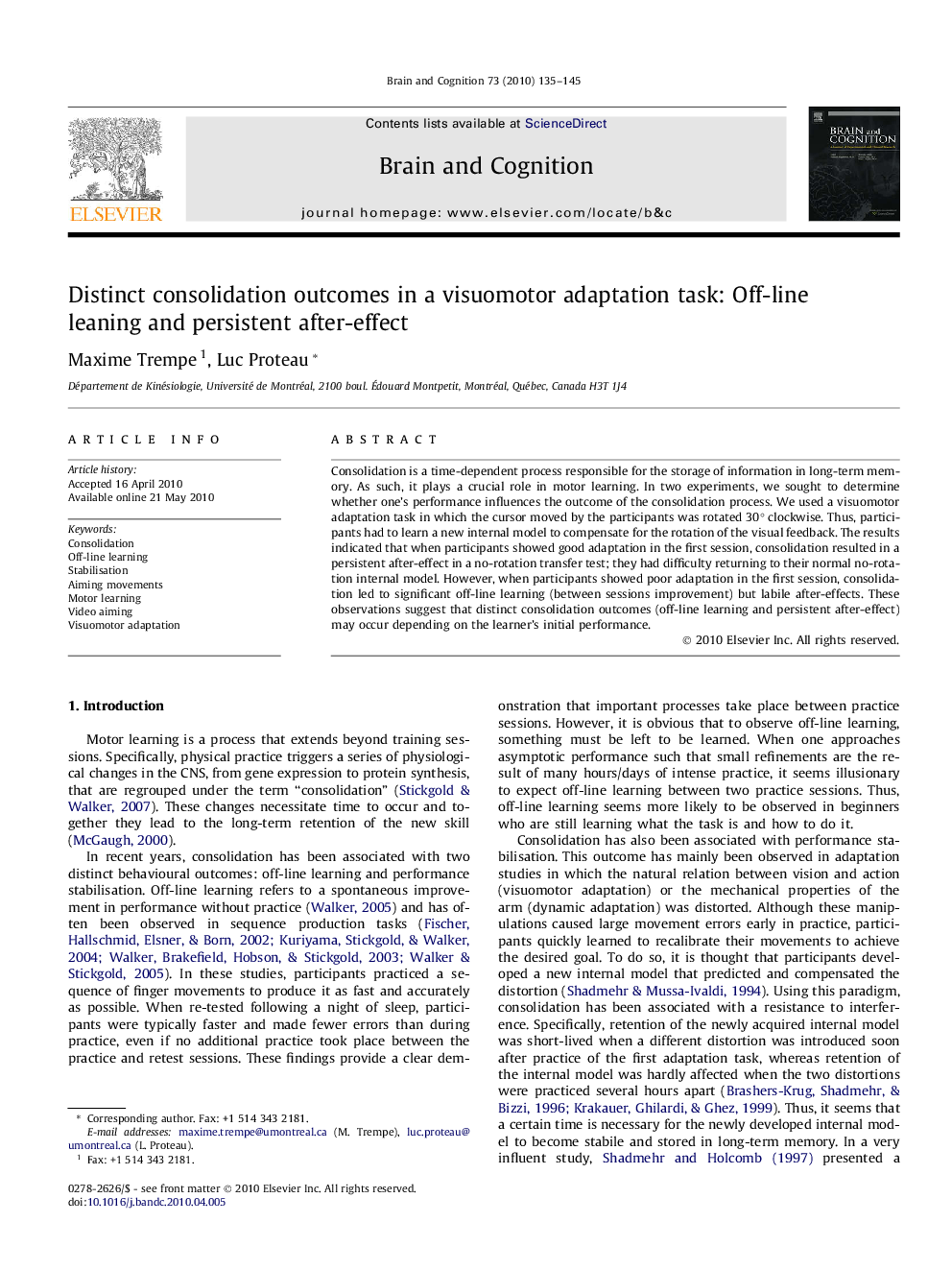| Article ID | Journal | Published Year | Pages | File Type |
|---|---|---|---|---|
| 924591 | Brain and Cognition | 2010 | 11 Pages |
Consolidation is a time-dependent process responsible for the storage of information in long-term memory. As such, it plays a crucial role in motor learning. In two experiments, we sought to determine whether one’s performance influences the outcome of the consolidation process. We used a visuomotor adaptation task in which the cursor moved by the participants was rotated 30° clockwise. Thus, participants had to learn a new internal model to compensate for the rotation of the visual feedback. The results indicated that when participants showed good adaptation in the first session, consolidation resulted in a persistent after-effect in a no-rotation transfer test; they had difficulty returning to their normal no-rotation internal model. However, when participants showed poor adaptation in the first session, consolidation led to significant off-line learning (between sessions improvement) but labile after-effects. These observations suggest that distinct consolidation outcomes (off-line learning and persistent after-effect) may occur depending on the learner’s initial performance.
